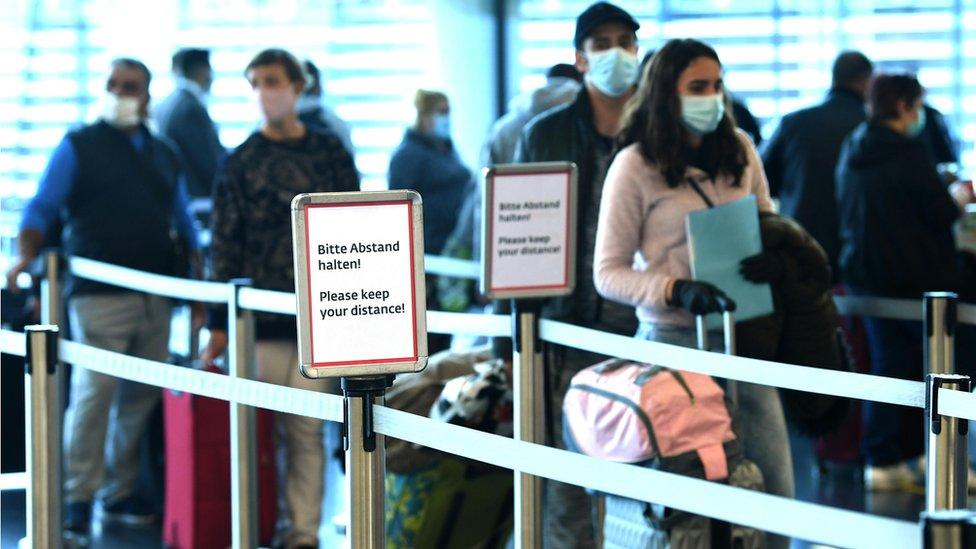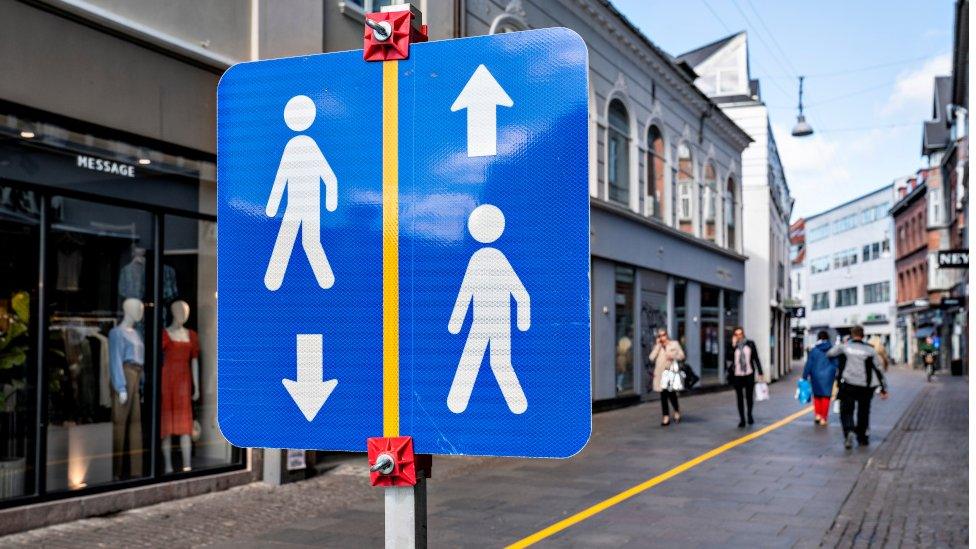Coronavirus: Austria issues travel warning for six Balkan states
- Published

Travellers returning from the six Western Balkan states will have to go into quarantine
Austria has issued travel warnings for the whole of the Western Balkans, on the day the European Union added two of the six states in the region to a safe list.
Several Balkan states are seeing a spike in cases, but the 27-member EU agreed that borders could be reopened to Serbia and Montenegro.
Austria said its highest travel warning was now in place for the region.
It includes Bosnia-Herzegovina, North Macedonia, Albania and Kosovo.
The category-six warning affects all travel to the Western Balkans and recommends that Austrians return from the countries involved immediately. Those coming back will either face a 14-day quarantine or must show proof of a negative Covid-19 test.
The UK, Portugal, Sweden and Turkey are also subject to Austria's highest warning level in Europe.
Austria has seen 107 new cases in the past 24 hours and Foreign Minister Alexander Schallenberg told reporters that some recent Covid-19 infections had been traced back to people who had travelled from the Western Balkans. "We see, for example, in our neighbouring (EU) countries Croatia and Slovenia, an increase in clusters of people returning from travel," he said.
Thousands of people in Austria who come from the region like to return there for the summer holidays, and the government in Vienna is aiming to discourage their trips.
What is the situation in the Balkans?
Last week, Croatia reinstated 14-day quarantines for travellers from Bosnia, Kosovo, North Macedonia and Serbia after it saw a spike in infections.
Spain's Alhambra Palace reopens to visitors
Those four states have seen a higher rate of infection since early June. North Macedonia has reported 2,067 cases in the past 14 days, with Kosovo and Albania both over 1,000.
A state of emergency has been issued in several towns and cities in Serbia, and on Monday Prime Minister Ana Brnabic was booed when she visited the city of Novi Pazar, one of the major infection hotspots.
Why are cases going up?

Countries in the Western Balkans had implemented some of Europe's strictest measures to restrict the spread of coronavirus. Governments deployed total lockdowns over long weekends, daily curfews and intercity travel bans.
The tight controls apparently produced results, with the region's infection rates a fraction of the EU average. Montenegro even declared that it was Europe's only country without a single active case.
But looser restrictions have brought record daily numbers of new infections in several countries, including North Macedonia and Bosnia. And even though Serbia and Montenegro are on the EU's green list, new cases have been rising there too - leading too Austria's latest warning.
Serbia has reintroduced some restrictions in an attempt to prevent the situation spiralling out of control. Its chief epidemiologist said the country was "now reaching the maximum of the second peak". Citizens planning to travel to EU countries will be hoping that is an accurate assessment.

- Published2 July 2020
